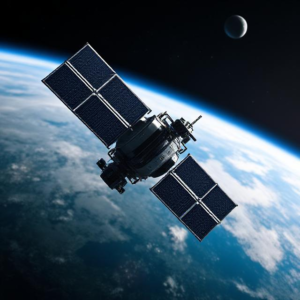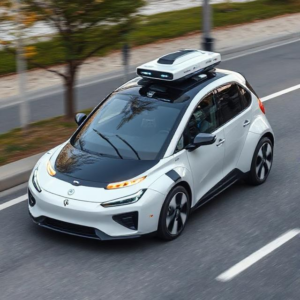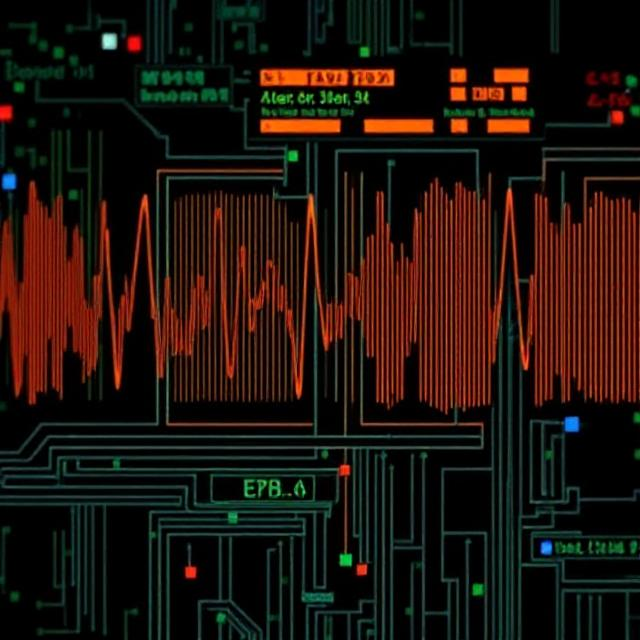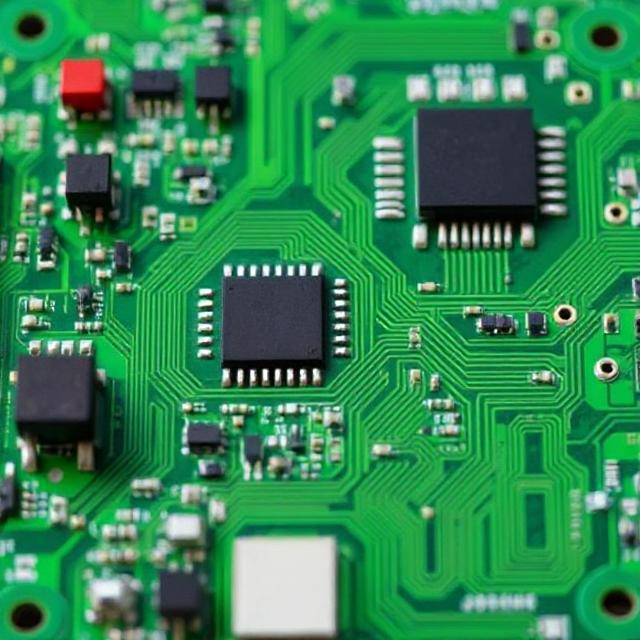1. What is GPS?
- GPS is a system that uses satellites in space to help determine your location on Earth.
- It’s like having a super accurate map that can tell you exactly where you are, no matter where you are in the world.
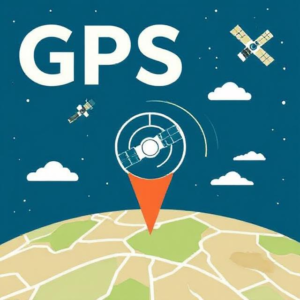
2. How Does GPS Work?
GPS works by using a network of satellites that orbit the Earth. These satellites constantly send out signals, and your GPS device (like a smartphone or car GPS) listens for those signals to figure out your location. Here’s how the process works:
- Satellites: There are about 30 GPS satellites orbiting the Earth. These satellites are always sending signals that contain information about their location and the time the signal was sent.
- Your GPS Device: Your device (like your phone or car GPS) listens for the signals from these satellites.
- Distance Calculation: The GPS device measures how long it took for the signal to travel from the satellite to your device. Since the signal travels at the speed of light, the device can calculate the distance between you and each satellite.
- Trilateration: Once your device knows how far it is from at least three or four satellites, it can use a method called trilateration to figure out exactly where you are on Earth.
- Trilateration is like using distances from known points (satellites) to figure out your exact position. It’s similar to how you might figure out your position on a map if you knew how far you were from three different landmarks.
3. What Do GPS Devices Need to Work?
- Clear View of the Sky: Since GPS relies on signals from satellites in space, your device needs a clear line of sight to the sky. This is why GPS might not work well indoors or in places like tunnels or under heavy trees.
- At Least 4 Satellites: To get an accurate position, your device needs to be able to “see” at least 4 satellites. The more satellites it can connect to, the more accurate your location will be.
4. Why Are There So Many Satellites?
- The 30 satellites in orbit are part of the GPS system to ensure there’s always a satellite overhead, no matter where you are. This way, your device can always connect to at least 4 satellites to calculate your position.
- If one satellite is blocked (like by a building), the system will use signals from others to still give you a location.
5. How Accurate is GPS?
- Under normal conditions, GPS can tell your location with an accuracy of about 5 to 10 meters (15 to 30 feet), which is usually good enough for most purposes like driving or hiking.
- In some cases, like with military-grade GPS or in good conditions with the use of additional technologies (like WAAS or differential GPS), accuracy can improve to within 1 meter or even better.
6. What Does GPS Provide?
GPS doesn’t just tell you where you are, but also gives you other useful information, like:
- Latitude and Longitude: GPS tells you your exact position on Earth in terms of latitude (how far north or south you are) and longitude (how far east or west you are).
- Altitude: Some GPS systems can also give you your altitude (how high you are above sea level).
- Speed: Your GPS can tell how fast you’re moving, which is helpful for things like navigation in cars or fitness tracking during running or cycling.
7. Uses of GPS
GPS is used in many areas, including:
- Navigation: For driving, walking, or flying to find directions to your destination.
- Location Services: Apps like Google Maps or Apple Maps use GPS to show your current location and provide directions.
- Outdoor Activities: GPS is used in hiking, biking, and geocaching to find your way in nature.
- Tracking: Many people use GPS for tracking their vehicles, pets, or even personal fitness.
- Military and Surveying: GPS is crucial for military operations and land surveying because it provides precise location information.
- Timing: GPS also helps provide precise time for things like communication networks and power grids.
8. Other Satellite Navigation Systems
While GPS is the most widely known, there are other global satellite navigation systems from different countries:
- GLONASS (Russia): Russia has its own satellite system similar to GPS.
- Galileo (Europe): The European Union is building its own navigation system, which works alongside GPS.
9. Why is GPS So Important?
- GPS is crucial for navigation, making it easier to find your way when traveling or driving.
- It’s used in emergency services, like helping rescue teams find people in distress.
- It’s vital for timing in many industries, such as telecommunications, banking, and electricity grids.
- It’s used in smartphones, so apps like weather apps, delivery tracking, and location-based services work properly.
10. How Does GPS Differ from Other Positioning Systems?
- GPS uses satellites in space, whereas some other positioning systems (like Wi-Fi positioning or Bluetooth-based systems) use signals from ground-based sources to determine your location. These might be used when GPS isn’t available, like indoors.
Summary:
- GPS is a system that helps determine your location by using satellites in space.
- It works by your device listening to signals from at least 3 or 4 satellites, then calculating your position on Earth using trilateration.
- GPS is used for navigation, tracking, and providing location-based services in many different industries, and it’s essential for devices like smartphones and cars.
- It’s accurate, widely used, and provides not just location, but speed and altitude as well.


